- Home
- James Rollins
Unrestricted Access: New and Classic Short Fiction Page 37
Unrestricted Access: New and Classic Short Fiction Read online
Page 37
He angles around bushes as he runs through the forest. His senses extend outward. Whiskers detect which branches are the most brittle and need to be avoided. Guard hairs on his body warn him when to shy away, when to bend. His sensitive pads inform him how best to shift his weight between his four legs to avoid any crinkle of dry leaf or rustle of pine needles. His eyes note the gradations of darkness ahead of him, guiding his path to the deepest shadows. His nose is even more sensitive, his nostrils flare, taking in every scent, painting the world in a kaleidoscope of trails, both past and present. They fill him and extend outward, tangling all into a whole, making him one with the forest, with the damp limestone, with the breeze blowing through the canyon.
In such moments, he is freed from his flesh and bones, from his panting breath and pounding heart. He senses a wider world beckoning him. It calls to him in the scrambling passage of a squirrel, in the bitter marker of a bobcat’s urine, in the flash of bright feathers as a warbler takes wing.
But he keeps his ears pricked high, swiveling one way, then the other. He hears those behind him, tracks their noisy passage, slows his pace to match. He ignores that call to race away into the larger world that tempts him, that calls to him. Instead, he feels something stronger tethering him here. It trails back to that well of warmth, that familiar tang of sweat and breath, to the promise buried there, of pack and home.
So he runs onward—but never too far.
(8)
7:42 a.m.
After only twenty minutes into the badlands, Abbie was already lost.
Sweat covered her body, less from the exertion and fast pace than from the sense that time was running short for her grandfather. Her disorientation was compounded by the need to hurry through the maze of ravines, canyons, and gorges, while also trying to match her steps to Tucker’s, to place her boot where he set his.
A tension headache pounded between her eyes. Her panting had grown into a dry-mouthed gasping. She clutched the Glock between both palms, letting its solid weight and heft anchor her, like a tightrope walker using a heavy pole for balance.
The group turned into a pinched crevasse, so narrow she could probably reach out with both arms and brush her fingertips along the sandstone walls to either side. Tucker did not slow, rushing along as the passage cut ever deeper into the land. She still caught no sight of his shepherd, but she knew the dog was somewhere ahead, guiding them unerringly along the bandits’ trail.
She swallowed and tried to distract herself with the unique geology of these badlands, what her people called Ingaya Hala, or Black Moon. Legends of this territory spoke of spirits who led trespassers to their doom. But, ghosts or not, she knew it would be easy to get lost in this labyrinth. She also read the danger in the rocks all around her. The tumble of boulders and scree from old collapses, the broken stump of arches overhead that they hurried under, the stained erosion of lower strata marking the riotous passage of countless flash floods.
This treacherous maze put the bad in badlands.
She knew from her study of this region that one of the major fault lines of the Sonoran Desert passed under this area. It was likely that fault’s instability that had shattered this rampart of raised bedrock into its current form, then centuries of rain had eroded those cracks and crevices even deeper.
She also recognized that their current twisted path was leading them steadily downward. She could feel the change in elevation in her ears, noted it as the cliffs rose higher and higher around them, squeezing ever tighter.
Ahead, Tucker lifted a hand, warning them to stop.
She obeyed, casting a glance back to Landon whose face was pasted with dust, lined by rivulets of sweat. His eyes pinched with tension.
Tucker ran ahead, to where the narrow crevice ended. He took a swift look, waved them to follow, and vanished out of sight. She hurried after him.
The crevice ended at a steep-walled bowl, like a giant’s well. She craned her neck at the sheer cliffs. She could not see any exit. It appeared to be a dead end.
Had the dog led them astray?
Across the way, Tucker crouched next to Kane, who paced the wall there, sniffing along the bottom edge. She heard a soft whine coming from the normally quiet dog. She crossed the bowl of sandstone to join them.
“Look at this,” Tucker whispered.
He pointed low, to a passage no higher than her knees. She bent down and placed a palm on the sand and the oddly smooth pebbles along the bottom. She twisted back around and examined the sandstone bowl, noting the snow-white band of strata halfway up the cliffs, where scale and minerals scarred the red rock, marking the level of an old water table.
She turned back to the wall and realized it was actually a slab of red rock that must have fallen across the gorge millennia ago, closing the place off and damming it up. Over the passing centuries, winter rains must have flooded down here, filling this bowl with water—until pressure and erosion had worn a channel under the slab, finally breaking through and draining the ancient lake and exposing this passageway.
“They went through here,” Tucker whispered. “You can see a few handprints and boot scuffs. The tunnel’s not long, maybe thirty yards. I can see sunlight on the far side. I’ll go first with Kane. You hang back until I give the all-clear.”
She nodded.
Tucker signaled Kane, and the dog lowered his head and shimmied under the slab’s edge and into the passageway. The shepherd no longer whined, but before he vanished, she noted the hackles raised along the dog’s exposed neck and shoulders.
Tucker followed on his hands and knees, leaving her alone with Landon. They both crouched at the tunnel’s mouth, watching the others’ passage.
“Can you feel it?” Landon asked, sticking close, his words a breathless whisper.
She frowned at him.
Landon had his rifle slung over his shoulder and rubbed his fingers, cracking his knuckles. He shook his hands. “The tingling? Like ants crawling under your skin?”
She shook her head, feeling nothing but her headache, her pounding heart. But she understood his meaning, remembering Kane’s whining and shivering hackles.
The dog had felt it, too.
“A vortex,” she whispered, both excited at the prospect and disappointed that she felt nothing. She waved behind her. “I bet this bowl had been sealed up for centuries. Remember that hellacious wet winter two years back? Those storms might have overflooded this place, enough to finally break open this natural dam.”
“If you’re right, then it’s no wonder no one ever found this site.”
“Until Uncle Oro stumbled upon it.”
They both watched as Tucker and Kane cleared the passage and disappeared. After several breaths, Tucker popped back into view. Limned against the sunlight on the far side, Tucker waved them over.
Abbie went first. She shoved the Glock into her waistband, dropped to her hands and knees, and crawled under the heavy slab. Landon huffed behind her, urging her faster.
She finally exited the far side—into a larger version of the bowl behind her. This valley stretched two hundred yards across. The cliffs were even taller here and sheltered a dark juniper forest. The shadowy trees were massive, clearly centuries old. The torrent, when the red-rock dam burst, had cut a swath through the forest, uprooting trees and digging a wide shallow trench in the sand. But the waters were long gone, having seeped into the depths of the sandy bowl or evaporated away.
Before she could discern more, Tucker motioned her to stay low and rushed her to the left, into the forest’s edge. They were followed by Landon and met up with Kane in those deeper shadows.
Kane’s eyes shone in the darkness. The dog panted, pacing a few steps back and forth, tail swishing in plain agitation. His hackles were still raised.
Even Abbie felt it now. Her scalp tingled; her hearing felt dulled as if she were underwater. In the past, she had felt similar inklings at vortex sites around Sedona, but never this strong.
“What do you make of th
is?” Landon said, his voice hushed with awe.
The physicist stood to the side, examining the bole of a huge, gnarled juniper. Its thick trunk was savagely twisted, the branches, too, even the bark. It was as if the old tree had been caught in a tornado and frozen in place. Just staring at its tortured shape, Abbie could almost hear the howl of that storm, feel that wind pressing against her.
Abbie ran her fingers along the bark. “You often see this type of effect around vortexes. Trees unusually twisted, supposedly swirled by the site’s energies.”
“And it’s not just the one tree,” Tucker said. He stood at the edge of the flood-ravaged wash. He lowered a pair of binoculars and passed them to Abbie. “Look.”
She lifted the scopes to her eyes and panned the enclosed valley. She didn’t see it at first, then the larger pattern snapped clear. She finally saw the forest through the trees. The encircling grove of ancient junipers—while all twisted—were bowed in the same direction, frozen in a perpetual spiral around the valley, a woodland version of a whirlpool.
“Check out the center,” Tucker said.
She followed the eddy of twisted trees to the sandy bottom of the bowl, where the forest ended. A tall black mound rose there, its top high enough to reach the morning sunlight angling over the edge of the cliffs. Crystals in that black rock refracted the light, creating a fiery crown at the summit.
“A cinder dome,” Abbie said.
“From an old volcano?” Tucker asked.
She shook her head. “Likely just a pimple on a far larger face hidden below.” She lowered the binoculars, picturing the depression down which they had traveled. “I’d wager we’re standing within a collapsed caldera, maybe miles across.”
Landon pointed to the right, where there was movement near the cinder slope. “And that must be the entrance down into it.”
Tucker took back the binoculars and studied the spot. “There’s a stone archway. Looks like they posted a single guard at that opening.” He turned to them. “You two work through the forest and get positioned directly across from there.”
“What’re you going to do?” Landon asked.
“Kane and I’ll take that guard out. As silently as we can. Then we’ll see about rescuing Dr. Kee.” He pointed across the washed-out gully to the forest on the other side. “If anything goes wrong, stay hidden.”
They both nodded and set off across the gap, using the root balls of upended trees to mask their passage. Halfway across, Abbie glanced back, but Tucker and Kane had already vanished. She hurried after Landon. For a moment, she got a full-on view of the dark cinder dome. It was hemispherical in shape, as if a giant black ball had crashed here and jammed halfway into the sand.
No, she realized, not a ball.
She shuddered as she recognized its shape, its dark crystalline color.
Here was the true heart of Ingaya Hala.
The Black Moon of legend.
She tore her gaze away and rushed after Landon. She remembered what else was said about that place, what those legends claimed that black moon hid.
The land of nightmares.
(9)
7:58 a.m.
Crouched at the forest’s edge, Tucker waited for Kane to get into position. He stared at the giant cinder dome. Its slopes sparked with crystals; its crown blazed with the first touch of the morning sun. A moment ago, he had sent Kane circling around the back of the dome, to close in on the archway from the other side. Once his partner was in place, Tucker would approach from this side.
Through his goggles, he watched from Kane’s point of view as the dog slinked along the edge of the dome. As he waited in the forest, Tucker’s skin crawled and itched. He wanted to dismiss the feeling as nerves, tension, or maybe the power of suggestion from all that talk about vortexes. Still, the hairs on his arms and his neck shivered. He found it harder to breathe, as if his chest were being squeezed in a vice.
He knew this wasn’t all in his head.
Kane had clearly felt it, too.
Tucker had never seen the dog so edgy. Besides the ridge of raised fur, Tucker read the subtler signs in his partner: the way his ears lay flatter, his tail held stiff and straight, the twitch in the big fella’s eyes, as if forever searching for a hidden enemy.
I get it.
Tucker also felt as if he were being watched. Finally, Kane’s camera feed revealed the edge of the stone doorway on the far side. The stone arch stuck out slightly from the cinder slope.
“Hold,” he radioed to Kane.
The shepherd lowered to his belly, his nose pointed forward, the camera fixed on the opening.
Tucker left the forest and rushed low across the ten yards of open ground to the hill. As he ran, Tucker felt that unnerving effect grow. His vision blurred at the edges. His skin felt hot, like after a sunburn. With every step, the vise on his chest squeezed tighter. Even Kane’s camera feed had begun to cut in and out.
Finally, Tucker reached the black slope and crouched lower, less from the need to keep hidden as much as to duck away from that pressure, as if he could somehow hide from it. He edged along the hill until he spotted the opening, then stopped. He noted movement at the arch’s threshold. He caught a glimpse of a shoulder, an elbow, as a guard paced, likely as nervous and affected as they all were.
Tucker needed to draw him out into the open.
He started to signal Kane to bark, to lure the man out—but instead, the guard stepped fully into view on his own, a radio at his lips, a pistol in his other hand.
“Hawk, what’s going on in there?” the guard demanded. “I’ve got the detonator all wired up out here. One through six. Let me know when to blow the first charge.”
Tucker pictured the near-empty box of dynamite in the back of the Bronco. Hawk’s team must be planning to do a little controlled blasting to speed up the extraction process. The mining equivalent of a smash and grab. It was risky, but Hawk’s team must know their time was limited and had to take the chance.
“Hawk!” the guard yelled. “Why aren’t you—?”
A piercing scream, full of terror, echoed out of the tunnel.
Startled, the guard jumped and turned—too fast for Tucker to retreat out of sight. The gunman did a double take in his direction. With a small cry, the man jerked his pistol up.
So much for stealth.
Tucker had already centered his Desert Eagle’s sights on the guard and fired two quick shots. Both .44 Mag rounds struck center mass, blowing clean through the man, knocking him backward.
As the sharp blasts echoed off the cliffs, he ran forward. According to Abbie, Hawk had another two men with him, somewhere down in that hill. Along with Jackson Kee, hopefully still alive.
He reached the opening, bridged by an arch of sandstone. Its surface had been etched with ancient petroglyphs: writhing figures of men and women, dancing amid flames, a sunburst at the very top. He stepped toward the mouth—only to be hit by an even stronger wave of energy. He gasped, his body burning. He stumbled back, momentarily losing his sight until he adjusted to that pressure.
He lifted an arm against it until he could see.
Kane ran up to him, whining deeply.
I’m okay, buddy.
He lowered his arm and patted the dog’s side. Behind him, Abbie and Landon came running out of the forest toward him. He tried to warn them back with a raised palm. They ignored him and rushed to his side. They clearly felt the energy, too, their faces tight, eyes wincing—but neither of them seemed as deeply debilitated as him. Even now, that energy felt like a physical wind blowing out of the hill, trying to keep him away.
He remembered Abbie’s story about how some people were more sensitive to vortexes. He glanced down to Kane, knowing his partner—and his littermate Abel—were assigned to him because of his unusually empathic nature, a trait that allowed him to bond with his dogs at a deeper level than most handlers.
Was that trait somehow tied to his sensitivity now?
He didn’t know.
/> He didn’t care.
Instead, Tucker faced that harsh wind and ordered the others—even Kane.
“Stay here. Guard this exit.”
(10)
8:01 a.m.
As Tucker vanished down the dark tunnel, Abbie paced on one side of the opening. Tension kept her breathless. Her bones vibrated like a tuning fork, making it impossible to stand still. She kept a firm grip on her Glock. Her ears strained for any indication of what was happening, but this close to the cinder dome, her hearing was further dampened, like a wet towel had been wrapped around her head.
Still, she was certain the scream a moment ago had not been her grandfather’s.
Please, still be alive.
She was not the only one worried. Kane stood under the arch, his nose pointed down the tunnel, his ears stuck up high, his tail low. His back legs were slightly bunched under him, ready to leap to his partner’s defense.
“I should be down there,” Abbie moaned. “We all should.”
Sheltered on the far side of the archway, Landon disagreed. He pointed his rifle at the tunnel. “That passage looks narrow. We’d just get in each other’s way. Tucker is right. This is the only way out. If anyone but Tucker or your grandfather shows their face, we take them out. We may be the last line of defense out here.”
She nodded and swallowed. To distract herself, she stared up at the arch of sandstone, at the ancient pictographs carved into its surface. Sticklike men and women danced and writhed within rust-red flames. She felt her skin continuing to burn, her nerves on fire. She reached out her free hand and touched one of the tortured figures.
Is this a representation of the vortex energies here?
She craned her neck and stared up at the giant sunburst inscribed at the top of the arch. The beams struck the nearest figures and shattered their forms into broken pieces.
If so, what did that represent?
She stepped back and stared higher, to the top of the cinder dome, to where sunlight set the crystals up there on fire. A cold sense of dread settled through her.

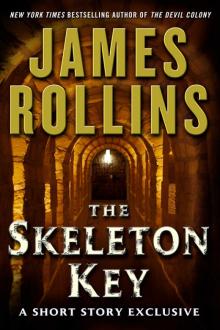 The Skeleton Key
The Skeleton Key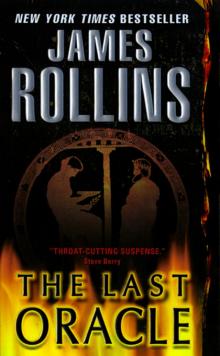 The Last Oracle
The Last Oracle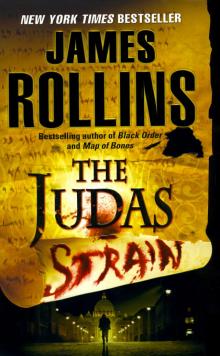 The Judas Strain
The Judas Strain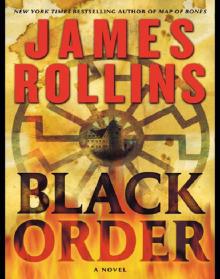 Black Order
Black Order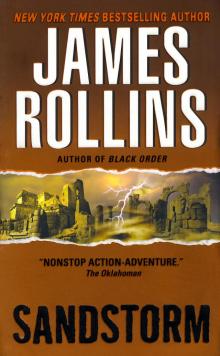 Sandstorm
Sandstorm Ghost Ship
Ghost Ship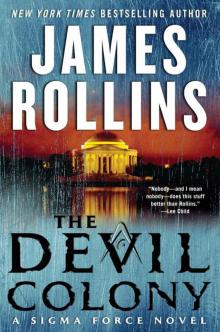 The Devil Colony
The Devil Colony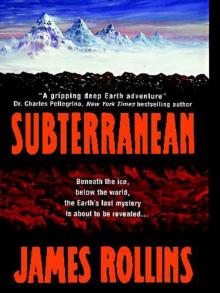 Subterranean
Subterranean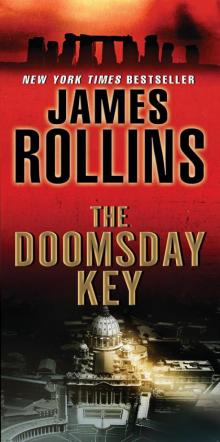 The Doomsday Key
The Doomsday Key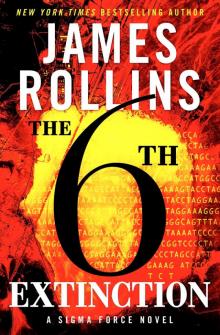 The 6th Extinction
The 6th Extinction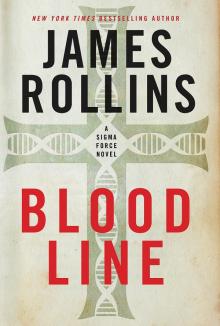 Bloodline
Bloodline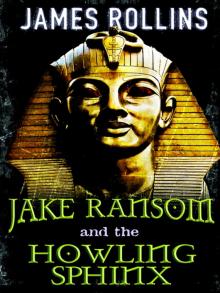 Jake Ransom and the Howling Sphinx
Jake Ransom and the Howling Sphinx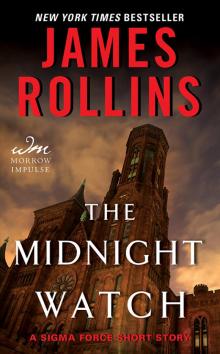 The Midnight Watch
The Midnight Watch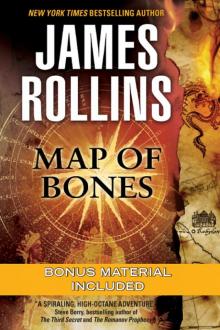 Map of Bones
Map of Bones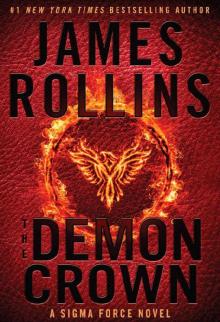 The Demon Crown
The Demon Crown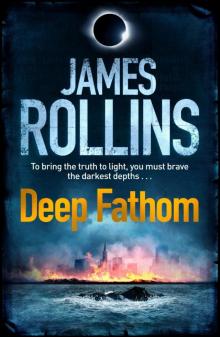 Deep Fathom
Deep Fathom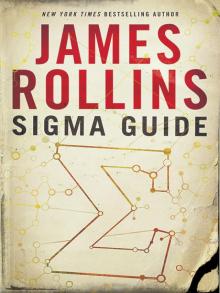 Sigma Guide
Sigma Guide Kowalski's in Love
Kowalski's in Love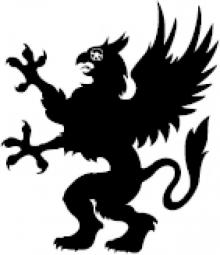 Jake Ransom and the Skull King's Shadow
Jake Ransom and the Skull King's Shadow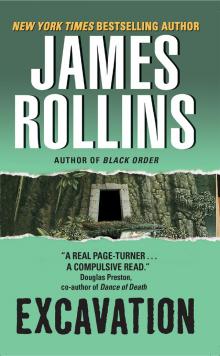 Excavation
Excavation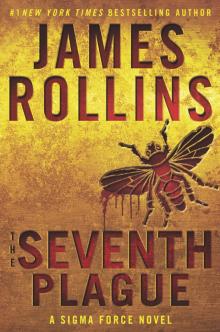 The Seventh Plague
The Seventh Plague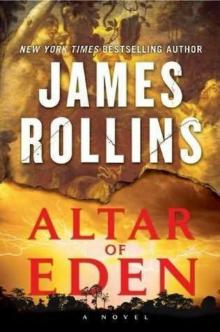 Altar of Eden
Altar of Eden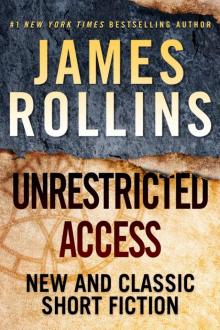 Unrestricted Access: New and Classic Short Fiction
Unrestricted Access: New and Classic Short Fiction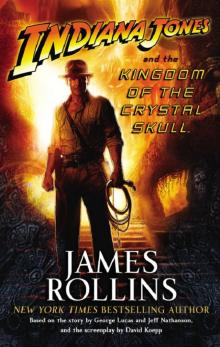 Indiana Jones and the Kingdom of the Crystal Skull
Indiana Jones and the Kingdom of the Crystal Skull Crucible
Crucible The Eye of God
The Eye of God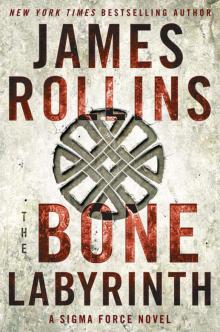 The Bone Labyrinth
The Bone Labyrinth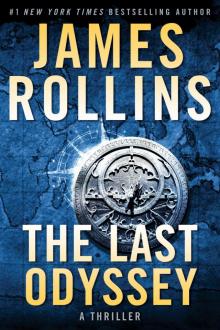 The Last Odyssey: A Thriller
The Last Odyssey: A Thriller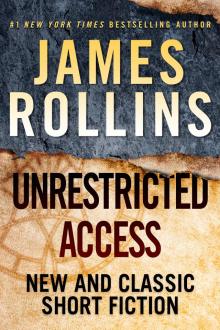 Unrestricted Access
Unrestricted Access Amazonia
Amazonia Blood Brothers: A Short Story Exclusive
Blood Brothers: A Short Story Exclusive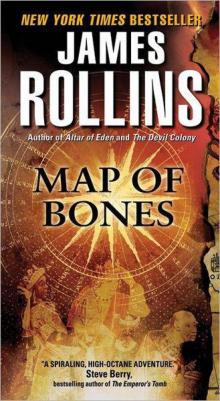 Map of Bones: A Sigma Force Novel
Map of Bones: A Sigma Force Novel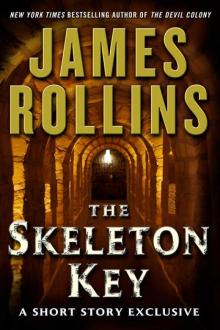 The Skeleton Key (sigma force)
The Skeleton Key (sigma force)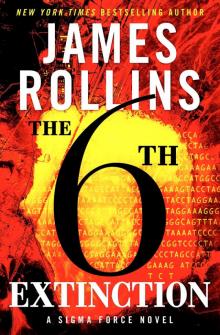 Sigma Force 10 - The Sixth Extinction
Sigma Force 10 - The Sixth Extinction Innocent Blood
Innocent Blood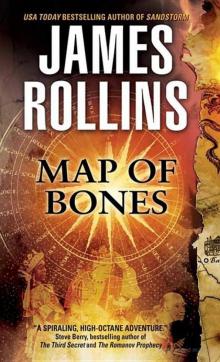 Map of Bones sf-2
Map of Bones sf-2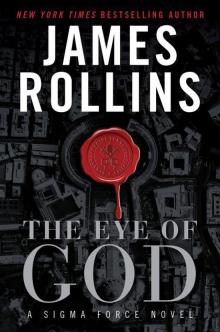 The Eye of God: A Sigma Force Novel
The Eye of God: A Sigma Force Novel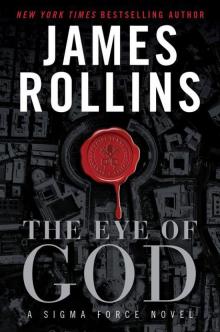 The Eye of God: A Sigma Force Novel sf-9
The Eye of God: A Sigma Force Novel sf-9 The Pit
The Pit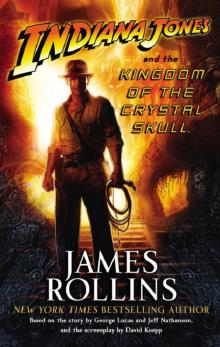 Indiana Jones and the The Kingdom Of The Crystal Skull
Indiana Jones and the The Kingdom Of The Crystal Skull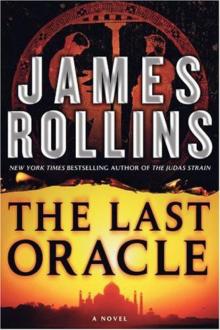 The Last Oracle (2008) sf-5
The Last Oracle (2008) sf-5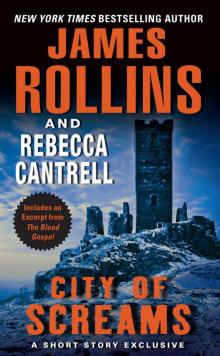 City of Screams
City of Screams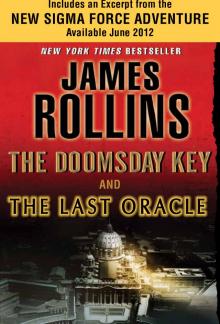 The Doomsday Key and The Last Oracle with Bonus Excerpts
The Doomsday Key and The Last Oracle with Bonus Excerpts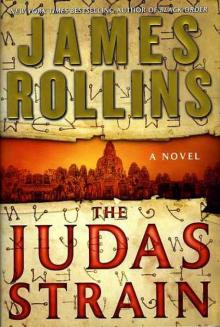 The Judas Strain sf-4
The Judas Strain sf-4 Blood Infernal
Blood Infernal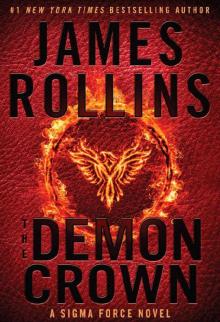 The Demon Crown: A Sigma Force Novel
The Demon Crown: A Sigma Force Novel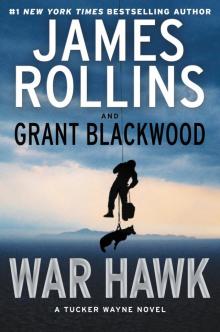 War Hawk: A Tucker Wayne Novel
War Hawk: A Tucker Wayne Novel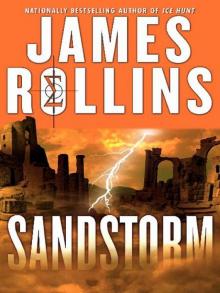 SANDSTORM sf-1
SANDSTORM sf-1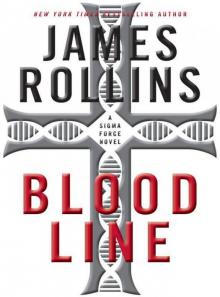 Bloodline: A Sigma Force Novel
Bloodline: A Sigma Force Novel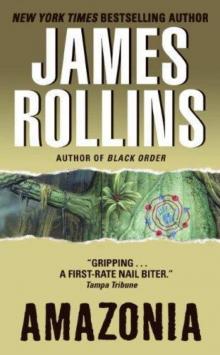 Amazonia: a novel
Amazonia: a novel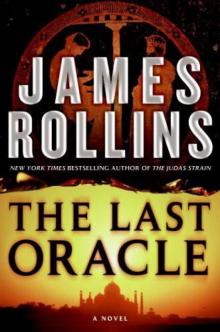 The Last Oracle: A Sigma Force Novel
The Last Oracle: A Sigma Force Novel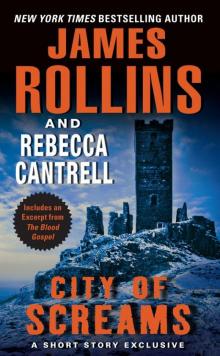 City of Screams (the order of the sanguines)
City of Screams (the order of the sanguines) Ghost Ship: A Sigma Force Short Story
Ghost Ship: A Sigma Force Short Story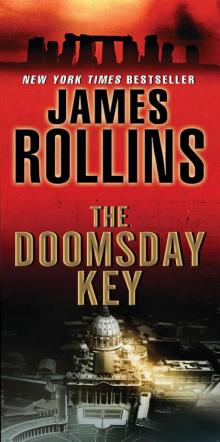 The Doomsday Key: A Sigma Force Novel
The Doomsday Key: A Sigma Force Novel